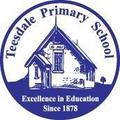Read, Eat, Sleep, Puff, Chat, Repeat!

Parents often ask about the biggest ways they can impact and support their child’s learning at school. Often homework and tutoring are options we look at first, but for many children especially in Primary school a day at school is more than enough. I know for me and the teachers it certainly is.
That’s why we’ve put together some practical advice called Read Eat Sleep Puff Chat Repeat which is designed to provide advice that supports a lifestyle and routine to making learning as easy and enjoyable for your child as possible.
In a snapshot, each and every day kids should
Read at home for enjoyment, be it with a parent or independently depending on their age and ability
https://www.learninglinks.org.au/why-children-must-read-20-minutes-each-day/
Whilst we don’t promote homework at Teesdale (that can wait until secondary school!) the ritual of nightly reading is hugely important. Whether it is a school take home book, a book from home or a book from the library any reading material your child can read and enjoy is worthwhile. I remember as a boy reading old football yearbooks, cricket tour diaries and autobiographies of sportspeople. These were topics I was passionate about and engaged me as a reader.
One important aspect of take home reading I want to highlight from the get-go this year is reading levels. We don’t use reading levels as a ladder, a competition or judgement of a student’s reading ability. Reading levels help guide us to know what texts a student could reasonably decode and comprehend at home in an easy manner. A take home reader should be an easy read for students and not a text they take a lot of time to decode, or cannot understand. This keeps reading enjoyable and builds students confidence as a reader. If students wish to read other books at home this should be encouraged provided they are texts they can read independently, or have challenging texts read to them by a family member.
All we want to know is that each and every day students have spent some time at home engaged in the process of reading.
Eat the right sorts and amounts of foods that make learning easy
Have you ever been at a Children’s Birthday party when the soft drink or lollipops come out? You’ll often see an immediate and noticeable change in the behaviour of children. At Teesdale we actively promote healthy food choices. Food is the fuel we put in our bodies to help us function. We unashamedly want students eating the best food they can each and every day to help them concentrate and learn at school.
As well as the types of food we eat, the amount of food we have makes a big difference too. The importance of a good breakfast every day makes a big difference for children, as does having a decent morning snack and filling lunch. Hungry kids are grumpy kids and struggle to focus and learn! The same goes for teachers too!
Sleep without distraction for 10 hours a night
ound%20eight%20to%20nine%20hours.
https://thesleepcharity.org.uk/information-support/children/The quality and amount of sleep your child gets each night shouldn’t go underrated when giving consideration to their ability to function at school. If you take one piece of advice from me this year, please ensure there are no devices available to your child before bed time. They don’t need them, they impact their sleep and can often lead to cyber issues too. Make sure the ritual of bed is screen free. This will have a huge impact on your child’s sleep.
You can blame Mr Irwin for this advice if you need to, but please give serious consideration to screen time in the evening and in a space where you cannot control what your child is doing with it.
Puff from being active from exercise for at least an hour a day
On the topic of screen time, why not replace it with some huff and puff? Recess and Lunchtime are always an active place at Teesdale, but there’s no harm in further time spent outdoors or exercising when at home. This might be in a local sporting club (Go the Roos!) but it doesn’t have to be. It can riding a bike, climbing a tree, building a cubby. After all, isn’t that why we live in a place like Teesdale after all?
Chat with their family about their learning and school day including any challenges they may face, but with a focus on being a positive discussion
https://raisingchildren.net.au/school-age/school-learning/school-homework-tips/talking-about-school
We all lead busy lives, but this is one of the most important things we can do as a parent to show we truly value our child’s education. As joint educators in 2020 during remote learning parents had unprecedented insight into what their children were learning and how they were going with it. And whilst we don’t want to go back to remote learning what we do want is to carry on a continued in-depth understanding of what our children are learning about and how they’re going with it. For all of the formal communication we have with school through reports, student led conferences and assemblies, the nightly ritual of talking to children about their day is far more profound. As you develop this ritual your children will become prepared and more articulate in sharing insights about their day.
Repeat and make these rituals at home not just once or twice a week but each and every day!


